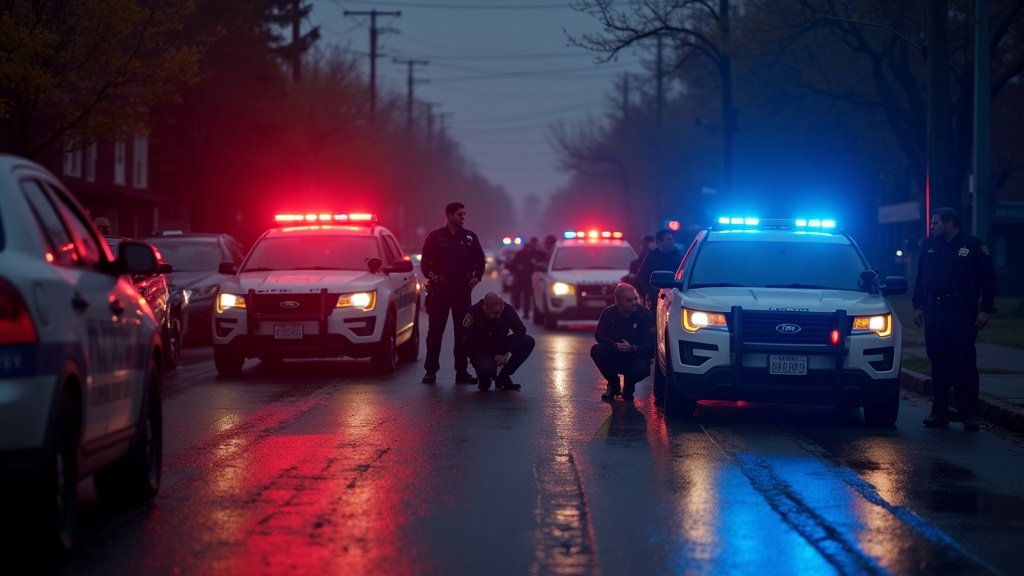The 2024 election is just around the corner, and Oregon voters are facing some significant choices. With ballots arriving in mid-October and Election Day on November 5, Oregonians will weigh in on everything from local governance to deciding who represents them in Washington, D.C. This year, the focus is not only on national races but on issues closer to home that affect education, tax policies, and the economy.
Let’s break down the most important topics for Oregon voters, so when that ballot arrives, we’re ready to make informed decisions.
1. Portland’s Local Government Overhaul: Restructuring for Efficiency?
This November, Portland voters are deciding on a new form of government, one aimed at replacing the current commissioner system with a stronger council-manager model. Under this reform, which proponents argue will streamline decision-making, Portland would elect a city manager accountable to a revamped city council structure. Many believe this will finally address Portland’s unique needs, given the challenges the city faces with housing, infrastructure, and public safety.
However, critics argue that such an overhaul may not address Portland’s deeper issues, such as homelessness and crime rates, and that it could merely shift power without substantive change. Portland’s residents will need to consider how this new structure could impact the city’s resilience and responsiveness.
2. Measure 26-231: The $1,600 State Income Dividend Proposal
One of the most talked-about ballot measures this year is Measure 26-231, which aims to create a state income dividend of $1,600 for every Oregonian by taxing larger corporations. Proponents argue that it could provide much-needed relief in a state where the cost of living continues to soar.
On the flip side, business advocates claim that taxing corporations could lead to job cuts, reduced investment, and economic slowdowns. Voters will have to weigh whether a potential immediate financial benefit outweighs possible long-term economic impacts.
3. U.S. Senate and House Races: Shaping Oregon’s Voice in Washington
U.S. Senate Seat: Oregon Stays Steady
Oregon’s two sitting U.S. Senators, Ron Wyden and Jeff Merkley, are both securely seated for the time being, so no U.S. Senate seat is on the ballot this year. However, local races in the U.S. House of Representatives will affect Oregon’s national stance on issues like healthcare, climate action, and education.
House of Representatives: Five Districts Up for Grabs
Each of Oregon’s five districts brings a unique set of priorities and candidates into the fold:
- 1st District: Representing northwestern Oregon, this district is solidly blue with incumbent Suzanne Bonamici running again.
- 2nd District: This conservative district sees incumbent Republican Cliff Bentz defending his seat.
- 3rd District: Multnomah County’s 3rd District is deep blue, with a hot primary race that saw Democrat Maxine Dexter emerge as the favored candidate.
- 4th District: Spanning the Oregon coast and into Eugene, incumbent Democrat Val Hoyle is running for her second term.
- 5th District: Lori Chavez-DeRemer, a Republican, faces off against Democrat Janelle Bynum in a closely watched race as Oregon’s swing district.
4. Ballot Measures on Healthcare and Education
Several critical ballot measures focus on healthcare and education. One key initiative proposes increased funding for mental health services, recognizing the ongoing mental health crisis in Oregon’s cities. Meanwhile, another measure seeks to expand education access by creating a “Learn Local” incentive program, giving families more control over their educational resources.
These measures could set precedents, as similar efforts are being closely monitored by other states. Voters here will need to think about the potential impacts on both individual and community health as they consider these propositions.
5. Housing Affordability and the Homelessness Crisis
Oregon’s homelessness crisis remains a top priority, with new policies on the ballot aimed at addressing housing shortages. Key initiatives include tax incentives for developers to build affordable housing and zoning changes that would make it easier to develop mixed-use properties.
Affordable housing advocates are hopeful these changes can begin to chip away at the barriers to providing stable, affordable homes across the state, especially in urban areas like Portland. Still, opposition argues that such changes might lead to rapid development with potential environmental impacts that could transform neighborhood landscapes.
6. Environmental Policies: A Future in Green Jobs?
Oregon’s commitment to environmental progress is at the forefront of this election, with several candidates and measures pushing for green policies. One ballot measure promotes tax incentives for green job training, aiming to develop an economy that focuses on sustainability and prepares Oregonians for jobs in renewable energy sectors.
Environmental policies in Oregon often find bipartisan support, especially when it comes to preparing for the future. Whether these measures pass or not, they reveal a broader trend in Oregon’s political landscape—a steady move toward a greener economy.
7. Transportation Infrastructure: Funding and Development
This election sees the inclusion of measures aimed at funding transportation projects, particularly in Portland and Salem. These initiatives focus on enhancing the state’s public transportation systems to reduce congestion and cut emissions.
Voters are considering if they’re willing to take on higher taxes for long-term infrastructure projects that might ease the daily commute. Both sides of the debate are vocal, as these improvements are expected to shape the way Oregon’s residents navigate their cities.
8. Law Enforcement and Criminal Justice Reform
Oregon voters will also weigh in on a measure seeking additional police funding and community-based public safety programs. With recent years bringing heightened scrutiny on police practices, this measure is seen as a way to balance public safety concerns with a demand for accountability.
Many residents believe in the need for reform, while others prioritize ensuring that law enforcement has the resources it needs to combat rising crime rates. This initiative encapsulates Oregon’s current approach to law enforcement, seeking a middle ground that addresses both safety and justice.
9. Voter Registration and Accessibility Innovations
One of the more progressive ballot measures this year would enable a fully automated voter registration process, making voting more accessible across the state. This would involve automatic updates to voting rolls whenever residents change their address or renew their driver’s licenses.
Oregon has long been a leader in accessible voting practices. If passed, this measure would bolster Oregon’s reputation for inclusive and progressive voting policies, setting a standard that other states may soon follow.
10. Economic Outlook: Will Oregon Continue to Thrive?
Oregon’s economic future hinges on several decisions this November, with both state initiatives and federal representatives pushing for economic reforms. A major point of discussion is Measure 26-231, which could bring in revenue by taxing corporations to help offset income inequality.
Additionally, voters are considering measures aimed at strengthening local businesses, with incentives for small business development in sectors like technology, agriculture, and tourism. The decisions made in this election will affect Oregon’s economic path for years to come, influencing job growth, industry health, and income equality.
11. Indigenous Rights and Cultural Preservation Initiatives
In a major win for Indigenous communities, voters are deciding on measures that could provide resources for preserving native languages and traditions. Another measure focuses on strengthening Indigenous rights by securing land for cultural sites and enhancing access to traditional resources.
These initiatives represent a broader acknowledgment of the cultural and historical contributions of Oregon’s Indigenous populations, and their passage would signal a commitment to respecting and preserving this heritage.
Conclusion: Why This Election Matters for Oregon
The choices Oregon voters make this November will shape the state’s trajectory for the next decade. From local government reform and critical environmental policies to economic initiatives, Oregon is positioned at a political crossroads. Residents of the state face a unique opportunity to lead the nation on issues of sustainability, inclusivity, and governance reform.
Oregon’s 2024 election season is packed with possibilities, and each voter has a role in deciding the future of this vibrant state. Oregonians have always been trailblazers, and this election offers a fresh chance to define what matters most to them. Let’s make sure we show up, engage with these issues, and continue building the Oregon we want to live in.
FAQs
- When is Oregon’s 2024 Election Day?
November 5, 2024. Ballots will arrive in mid-October, and they must be returned or postmarked by Election Day. - What are the most important issues on the ballot?
Key issues include Portland’s government reform, corporate tax-based dividends, housing affordability, and environmental job incentives. - How is Oregon addressing the homelessness crisis?
Through zoning reform and incentives for affordable housing development, aiming to make housing more accessible across the state. - What are the significant congressional races in Oregon?
Five districts have races this year, with each bringing unique candidates and priorities, especially in the closely watched 5th District. - Why should voters support automated voter registration?
This measure would simplify voter registration, updating records automatically and making the voting process more accessible across Oregon.




